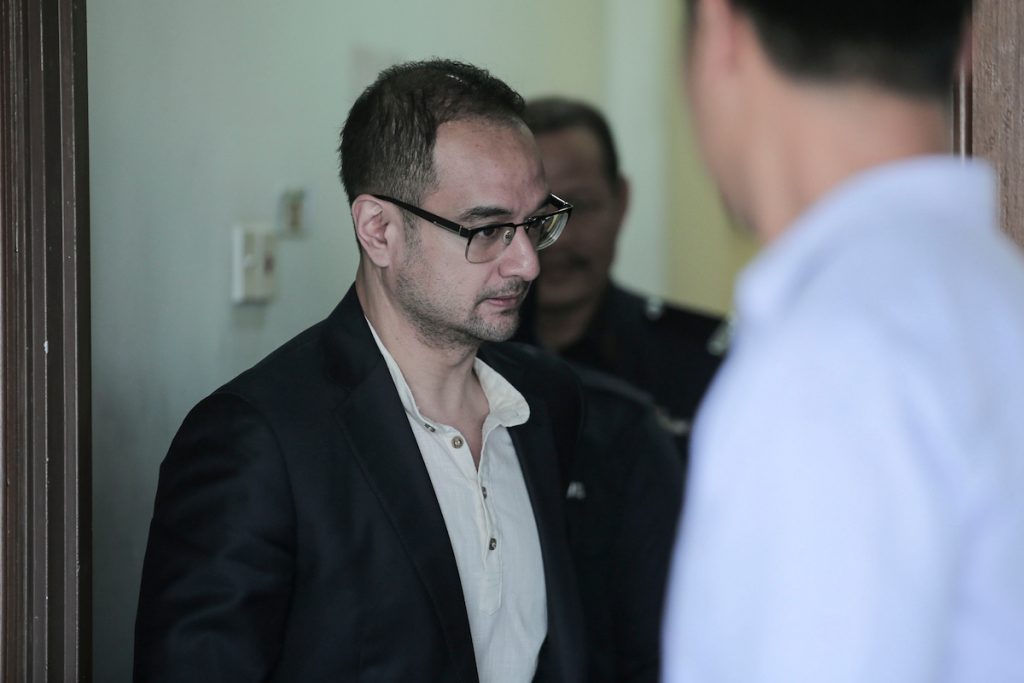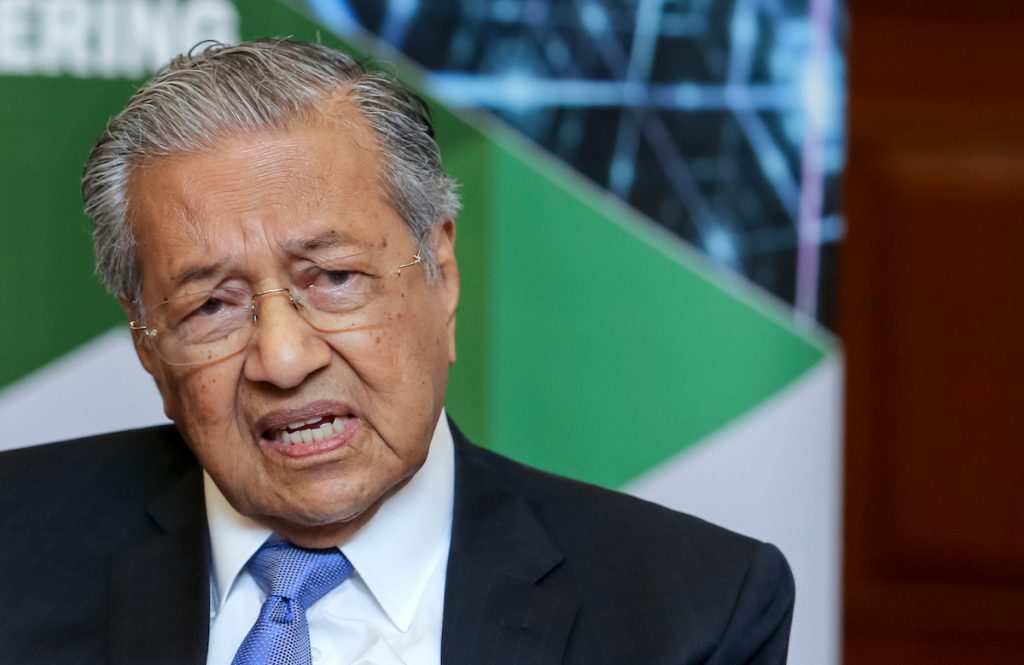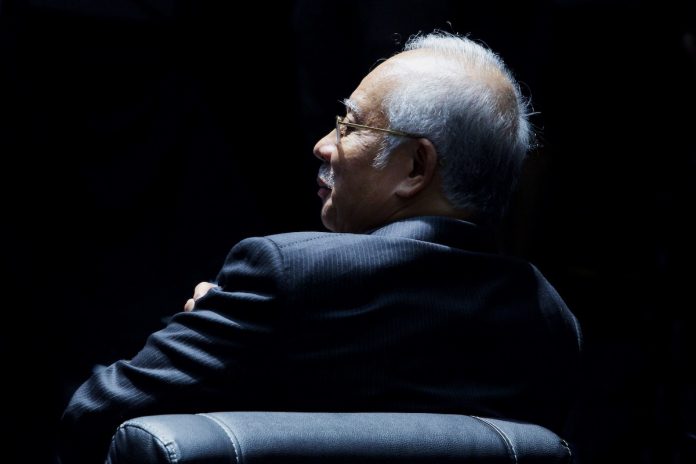As Malaysia creaks and groans its way back into life after a three-month lockdown, so does the showpiece that has become the legal system.
Rarely has the Kuala Lumpur Court Complex been held under such intense media scrutiny with multiple trials for corruption ongoing at the same time.
These trials are significant in that they have come to represent — to Malaysia’s urban middle class at least — the decadence of a government gone bad, alleged to have systematically looted the nation’s coffers over a decade or more while the people they championed were kept in perpetual poverty.
The list of names includes Mohd Isa Abdul Samad, former chairman of the Federal Land Development Authority, former Federal Territories minister Tengku Adnan Tengku Mansor and former deputy prime minister Ahmad Zahid Hamidi.
Collectively, these men are facing in excess of 50 charges and, if the law is applied to the letter, 20 years in prison upon conviction.
However, pride of place in this media circus goes to former prime minister Najib Razak, his wife Rosmah Mansor and a number of their children — known as the ‘first family of corruption’ in broadening social circles in Malaysia — facing a litany of charges for corruption and tax evasion.
Najib in particular has become synonymous with the 1Malaysia Development Board (1MDB) sovereign wealth fund corruption scandal.
He and financier Low Taek Jho, also known as Jho Low, are accused of plundering 1MDB for in excess of US$4.5 billion, siphoning off money through dozens of shell corporations and making payments to a myriad of so-called charitable organisations or good causes.
Meanwhile, 1MDB collapsed with the taxpayer having to foot the US$11.5 billon bill. All this at a time when Najib and Rosmah were reviled for their opulent lifestyle while ordinary Malaysians suffered.

Yet, of more interest to American followers of the scandal was the involvement of Rosmah’s son, Najib’s stepson, Riza Aziz. His company Red Granite Productions financed the Hollywood film The Wolf of Wall Street in part with, prosecutors allege, US$250 million in ill-gotten gains from 1MDB.
The irony is the film chronicles a sorry tale of greed and corruption, and the high-profile nature of this aspect of the scandal is arguably one that kept it alive.
As prime minister, Najib was able to strangle domestic coverage of events, while in the U.S. the Washington Post and later the Department of Justice sank their investigative fangs into the fat 1MDB carcass meaning this was not a story that was going to go away.
Such was the negative publicity that Leonardo di Caprio returned the Oscar he won for his lead in the film, while investigators uncovered 1MDB-linked cash, luxury properties, antiques, the list goes on.
So, when the time came for Riza to stand in the dock in Kuala Lumpur and account for this sizeable donation from his stepfather, he decided to cut a deal.
It seemed pretty straightforward, Riza having made similar reparations to the U.S. government in 2016. He settled for US$60 million out of the US$100 million it was chasing, an everyday occurrence in U.S. law.
Last month in Kuala Lumpur, Riza agreed to pay back US107 million in return for prosecutors dropping the charges.
However, this was not an everyday occurrence in Malaysian law and the public was enraged.
Riza, from their point of view, was a member of this ‘first family’.
To the public, for this man to step off his private jet from LA, swan into the high court and negotiate a cut-price deal for US$100 million, as if he was paying a parking fine, was not the done thing.
Malaysians had been led to believe that examples would be made of Najib and his family, so for one of them to get off essentially Scot free was too much.
The deal also kickstarted a furious debate in legal circles, as former attorney-general Tommy Thomas had until recently overseen the prosecutions — of all the above mentioned — and said he would never have sanctioned the agreement.
Lead prosecutor in the trials, Gopal Sri Ram, disagreed. He alleged settling the case had been discussed.
The official line from the Attorney-General’s Chambers was the settlement was made in the public interest, bearing in mind a protracted trial, guarantee of conviction etc.
The public decided the agreement was not in its interests and that political influence had been brought to bear to ensure Riza did not see the inside of Sungai Buloh Prison.
You see, in Malaysia everyone knows the line between the judiciary and the executive is opaque at best.
Trials of high profile or senior figures are subject to political sway, given that cases are ruled upon by a solitary judge.

Moreover, in 1988, then prime minister Mahathir Mohamad was facing a leadership challenge, the courts ruled he was not legally head of his party and as such not prime minister. So, he fired the judiciary and had them replaced with judges who would bend to his will — and he continued to rule for another 15 years.
This is why the public have very little faith in the legal system and why high-profile defendants repeat the “politically motivated” mantra to every journalist who sticks a voice recorder under their nose during the trial.
It was used extensively by opposition leader Anwar Ibrahim when Najib was prime minister. Until recently, Najib used the same public defence.
So, in the context of 1MDB and the other trials mentioned here, it was the reformist Pakatan Harapan administration in the seat of government during the defendants’ arrest and prosecution.
Like a gaggle of malingering 8-year-olds trying to get out of phys ed, Najib et al used every excuse under the sun to get out of court dates for the better part of two years.
No-shows before the judge were a monotonous occurrence, testing the patience of everyone with a vested interest.
Then, in February this year, the government inexplicably collapsed, and power returned to the Malay-dominated conservatives who had, at some point in their career, worked for or been closely allied with Najib.
With this in mind, you can understand the public’s sense of unease. Despite the seemingly overwhelming proof — including well publicised audio recordings of Najib and Rosmah conspiring to launder funds — there is an undercurrent of pessimism that they will walk free.
Riza was supposed to be the first piece in the puzzle, his conviction lining up the subsequent guilty verdicts for the less than ethical members of his family.
Yet, amid the cacophony of argument and counter argument, it seems another aspect of Riza’s deal has been overlooked by the public.
Apparently, he has agreed to testify against his stepfather.
And so the plot thickens…
Gareth Corsi is a freelance journalist based in Malaysia. The views expressed in this article are the opinions of the author and do not necessarily reflect the editorial stance of LiCAS.news.









